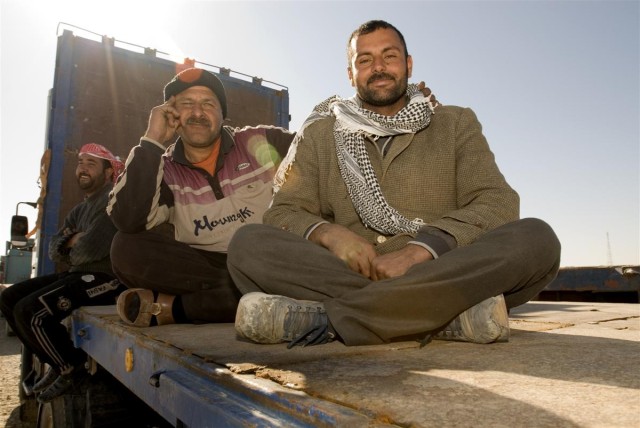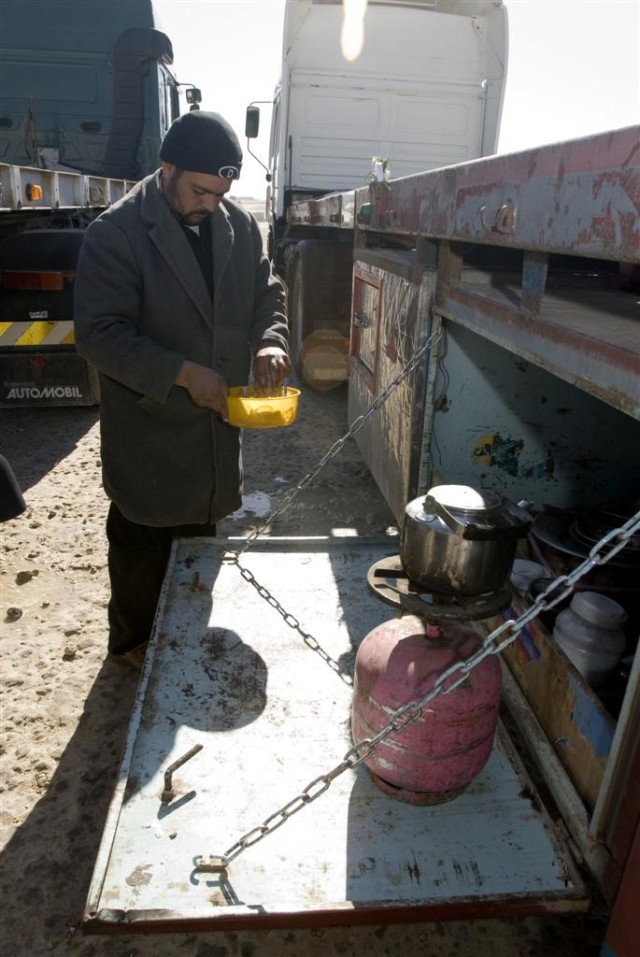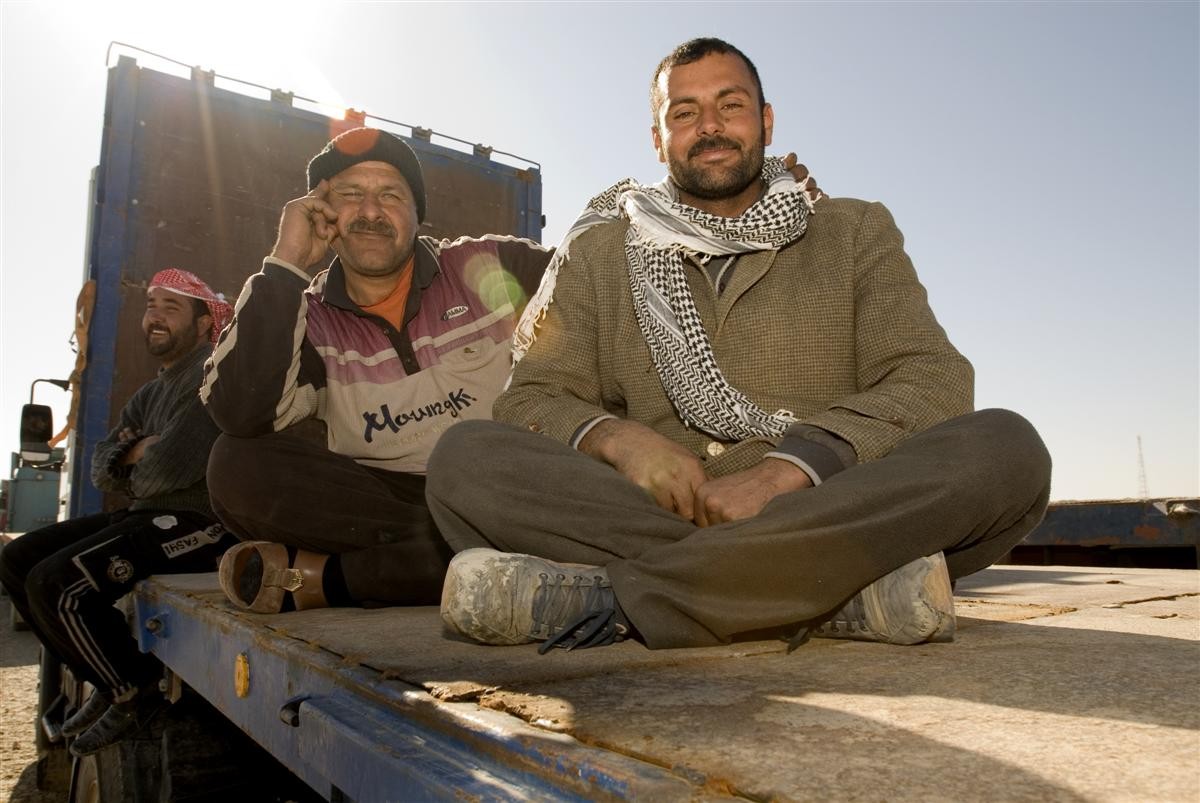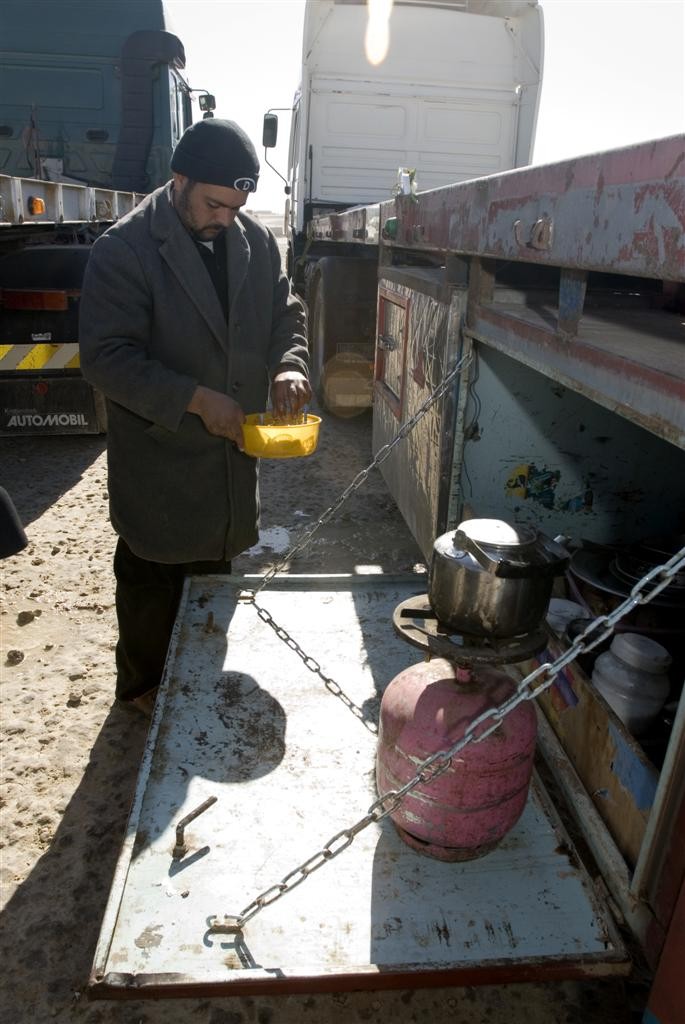JOINT BASE BALAD, Iraq - Soldiers of the 49th Transportation Battalion, a subordinate unit of the 3d Sustainment Command (Expeditionary), control and track all ground and air movements around Iraq daily in support of Coalition forces.
The 49th Trans. Bn., from Fort Hood, Texas, also plays a role in encouraging the development of Iraq's commercial trucking industry by capitalizing on Al Seqir, said Lt. Col. Peter M. Haas, commanding officer, 49th Trans. Bn. A consortium of tribally owned trucking companies, Al Seqir provides the Coalition with another option for moving cargo around Iraq, in addition to military and civilian-contracted convoys.
"It's an additional capability to what we brought into country ourselves," Haas said, referring to Al Seqir. "We're going to need more transportation (assets) as we downsize and take all this (equipment) out."
Al Seqir was used extensively when smaller contingency operating bases and joint security stations were closed in accordance with the Security Agreement, he said. The Iraqi trucking companies moved T-walls, barriers and construction equipment, primarily.
The concept of private trucking companies is new to Iraq, explained Capt. Carey Menifee, the 3d ESC's lead planner for the Iraqi Transportation Network, of which Al Seqir is one facet. Before, under the reign of Saddam Hussein, trucking was controlled by Iraq's Ministry of Transportation.
The Commercial Movement Division was created, in part, to centralize and simplify the process of moving cargo and to promote the use of Al Seqir, said Capt. Jeffrey A. Doyle, 1177th Movement Control Team and officer in charge of the CMD.
Previously, the process was very confusing, and required customers to do most of the leg work, he said. Now, the process is integrated into the military system, meaning customers submit movement requests and sustainment units determine how best to transport the cargo.
Compared to military convoys, Al Seqir offers several advantages, Haas said. Unlike Coalition convoys, Iraqi trucking companies are not limited to certain routes or times of the day when they're allowed to operate, and they can travel individually if necessary.
"That's actually what makes Al Seqir desirable for the future," said Doyle, a native of San Diego, Calif. "Just like any trucking company, they're picking up their cargo. We don't have to worry about security, recovery; we don't have to clear routes for them."
Thus far, he said, there have been no major issues of theft or insurgent attacks on any Al Seqir movements. The trucking companies themselves assume financial responsibility for the safe delivery of U.S. military cargo.
"The key to that success is that the Iraqi people are directly involved," Doyle said.
There are restrictions to what Al Seqir is permitted to move, he admitted. Only containerized items, bottled water and construction materials typically are moved by Iraqi trucks. Still, Doyle estimated approximately a quarter of the 1,600 to 2,000 trucks the CMD moves a week are Al Seqir.
Utilizing Al Seqir both reinvests money into the local economy and develops another transportation capability, which is particularly important as Coalition forces continue their responsible withdrawal from Iraq, said Haas, a native of Fleetwood, Penn.
"This opens up opportunities for us to keep Soldiers out of cities and off the roads," Doyle said. "It makes perfect sense to start pulling [military] assets back and allow Iraqis to help us."




Social Sharing